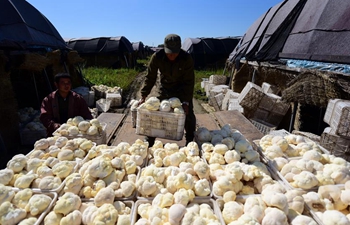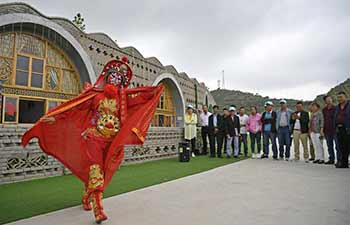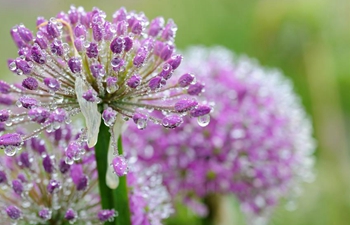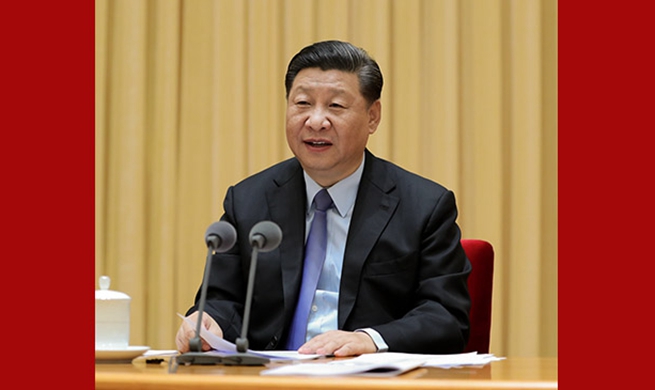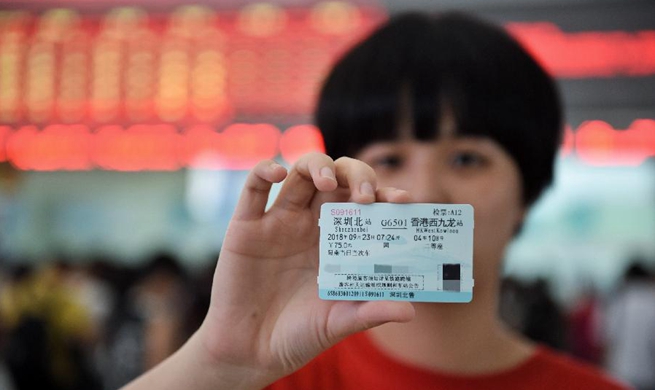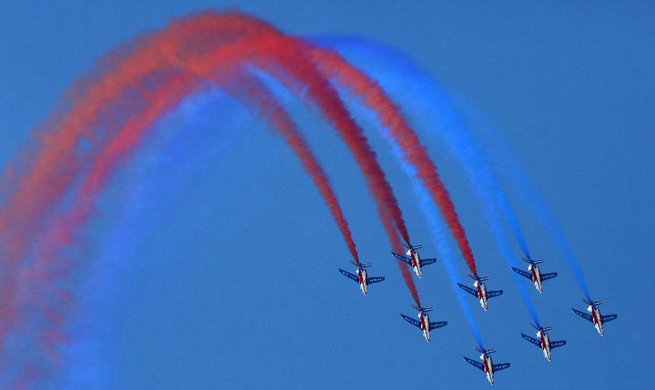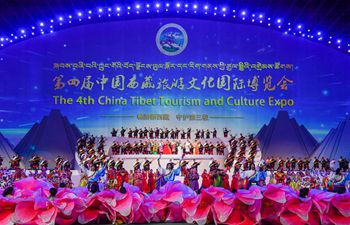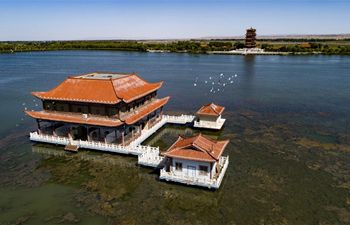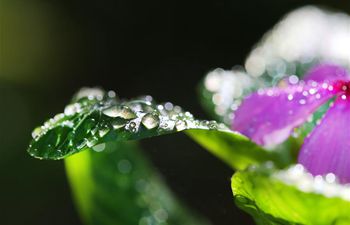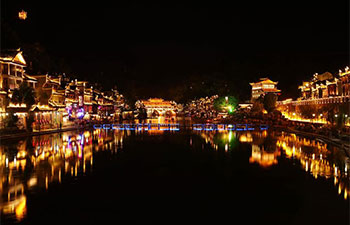ADDIS ABABA, Sept. 10 (Xinhua) -- Jiao Yongshun, who has lived in Ethiopia for close to two decades and accustomed with the culture of the country, said celebrating New Year in Ethiopia rejuvenates a foreigner with the feeling of seven years younger than anywhere else in the world.
Jiao, who is currently serving as the Deputy Director of Ethiopia's Chinese-built Eastern Industry Zone, celebrated two new year fests - the internationally acclaimed New Year on January 1 traveling back home in China as well as the unique Ethiopian New Year on September 11 (or September 12 during a leap year) with colleagues and friends.
Celebrating the Ethiopian New Year by attending household ceremonies with his Ethiopian colleagues and friends, Jiao said "it feels as if I am seven years younger than being in China or anywhere else in the world."
The east African nation uses a unique calendar, which counts its year seven years behind the Gregorian calendar.
While marking the arrival of the Ethiopian New Year, or Enkutatash in Amharic language, on Tuesday, the country is presently welcoming 2011.
Jiao said that celebrating New Year in Ethiopia brings "ecstasy to someone accustomed with the Gregorian calendar. It makes me feel as if I am seven years younger than my friends and family in China."
"Most of the Ethiopian New Year celebrations that I had during my 19 years of stay here in Ethiopia were of great memories," Jiao told Xinhua on Monday, adding that "I enjoyed most of the New Year celebrations with colleagues and friends, enjoying the ceremonies at their house."
Jiao, who also previously lived in semi-rural part of Ethiopia for years working in a local textile factory, also expressed his affection and respect to his Ethiopian colleagues and friends as well as the general public in Ethiopia which he said are "very friendly."
"It has been such a great 19 years and 19 Ethiopian New Year celebrations here. The Ethiopian people are really amazing," he stressed.
Ethiopia has its own calendar with 13 months, and each of the 12 months has 30 days, while the 13th month, called Pagume, has five days, which becomes six in each leap year.
As it comes with change of the season, the New Year in Ethiopia is characterized by many as new hope and new beginning.
New Year celebration is also known for bringing almost all Ethiopians in diaspora from the rest of the world in a bid to celebrate the unique Ethiopian New Year with family and relatives.
Celebrations for the Ethiopian New Year is usually a week-long fest, while the major holiday starts on the eve, whereby each household or neighbors lit wooden torches locally called "chibo" in Amharic language, which symbolizes the coming of the new season of sunshine after the end of the cloudy (rainy) season that has prevailed since June.
Huang Baodong, another Chinese expat in Ethiopia who also shared his Ethiopian New Year experiences to Xinhua, also said that he has previously attended two New Year celebrations with Ethiopian friends, which he said were "very great."
Huang, after attending the New Year celebrations tasting variety of Ethiopian dishes, also said that "Ethiopians are different in so many ways starting from their New year."
The New Year brings an extended family together to attend a series of events, including slaughtering of cattle, either a sheep, goat or cow, depending on a household's financial condition. Often, a community or a village will pool money to slaughter a cow in group, while each household can choose to slaughter a less expensive sheep.
The Ethiopian New Year comes at the time when the heavy rainfall starts to cease, and the bright sun comes to shine over the green land, which is also covered by the golden flower known in Amharic language as "Adey Abeba."
